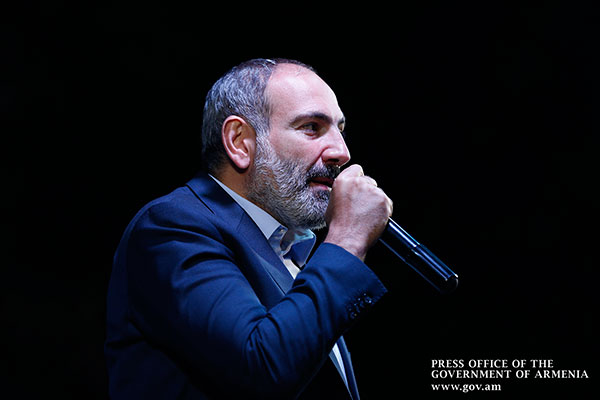If you’ve walked down the streets of Yerevan lately, then you’ll have noticed that people were watching the prime minister’s speeches on their phones in shops, parks, and cafes. They’re not waiting to hear what Nikol Pashinyan has to say about how they’re going to solve Yerevan’s problems, or his explanations as to why food has gotten more expensive. People want to hear the prime minister’s piercing jabs at Kocharyan, Sargsyan, and the RPA, since that resonates with their feelings and wishes. Of course, the RPA and Kocharyan create the possibility for such discussions with their frequent speeches and interviews. Any media network’s articles that talk about their viewpoints cause dozens of comments, of which 90 percent are curses. The “former” authorities still haven’t realized how people react to what they say (regardless of whether they’re right or wrong) and so they continue to talk.
Less experienced citizens think that this will last forever or at the very least, for a long time. But those who have seen this already several times know that this situation is temporary. The “former criminal regime” is casting stones at the current regime’s resources, which are decreasing. I’ve already come across normal, non-political people, who are confused about how people can write sexual insults about, let’s say, Eduard Sharmazanov. Those people don’t like the formerly powerful political party, they just simply aren’t thirsty anymore for revenge.
But that will finally be over when the parliamentary elections take place. The force that ties the RPA and Kocharyan together won’t get into parliament, and they will be reduced to a marginal political force. Just as the communists and Pan-Armenian Movement are now. That’s why I think that dissolving parliament and holding new elections need to be done as soon as possible. That, by the way, also will help Armenia in foreign policy.
As far as hatred… that will not hurt anyone besides you. Two people who were sent to Nazi concentration camps met 20 years later and the one asked the other, “Do you still hate the people who did that to you?” “Of course,” he answered. “Then you’re still in prison,” his friend replied.
Aram Abrahamyan


















































